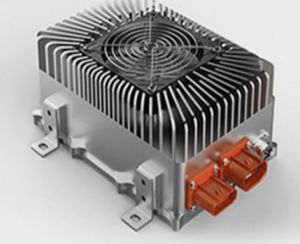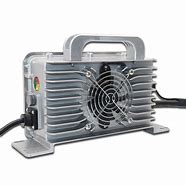Ownership and interest in electric vehicles (EVs) are increasing at unprecedented rates across the country. EV sales doubled in 2021 from the previous year to a new record of 6.6 million. As more consumers purchase an EV, an open and fair charging network is needed to ensure fairness in the market for current and future EV drivers.
With the passage of the Bipartisan Infrastructure Law, the Federal government has committed $7.5 Billion to EV charging equipment. In order to keep EVs on the road, public charging stations will need to be economical, equitably distributed, appealing to use, and wired to a robust power grid.

Recently, there have been fierce debates regarding the ownership of EV charging equipment. Electric utility companies have argued that they reserve the right to charge for electricity at charging stations. In addition, utility companies are at an advantage over the private sector companies because many states allow for the utilities to access ratepayer funds to subsidize the installation of charging stations.
Accessing ratepayer funds makes it significantly easier for utility companies to turn a profit on their stations than those in the private sector. In addition, utility companies can use ratepayer funds to install EV charging stations that only a small percentage of customers will use. In effect, utility companies are charging non-EV drivers to install charging equipment.
The debate regarding utility ownership is playing out in state capitals across the country. For example, Florida House Bill 737 (2022) would have ended the current practice of letting the electric utility companies make customers pay for the financing of charging station development in 2024 and write rules to encourage competition and private investment. In Wisconsin, an EV bill in the state Senate was introduced, which would have allowed private entities to own EV charging stations and bill customers for connecting to them (or “parking near” them). While well-intentioned, some amendments to the bill would not allow cities and towns to build for-pay charging stations in municipal parking garages or along commercial strips.
Bills like those proposed in Wisconsin would be detrimental to the EV landscape because companies would only be incentivized to deploy charging stations in areas guaranteed to generate profits. As a result, densely populated and wealthier communities with higher degrees of EV adoption would be selected for charging stations, leading to rural and disadvantaged communities being left behind and discouraging future EV adoption. In addition, existing EV drivers’ range anxiety could be exacerbated as charging stations would only appear in a limited number of areas.

Another issue arising from utility ownership relates to their partnerships with private companies. For example, a utility company could stifle competition by purchasing only charging equipment from one vendor. This is problematic because the charging equipment vendor would lack an incentive to innovate and continue providing quality service. Additionally, this would prevent other companies from entering the utility’s territory and limit consumer choice.
Next:How to Choose the Right EV Charger
Previous:Choose the perfect charging station for your electric vehicle.
Contact Person: Miss. Kiki
| WhatsApp : | +8617763224709 |
|---|---|
| Skype : | +8617763224709 |
| WeChat : | +8617763224709 |
| Email : | kiki@lifepo4-battery.com |